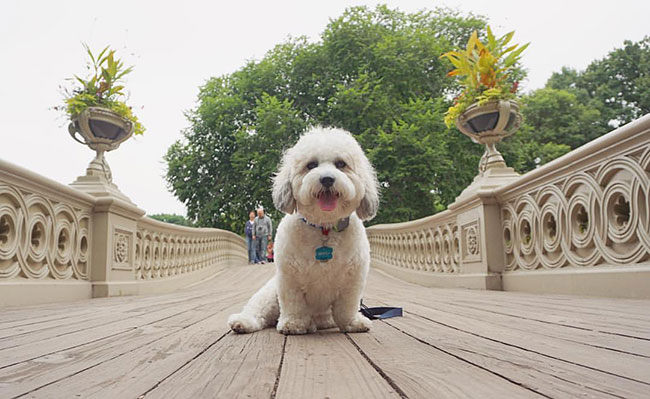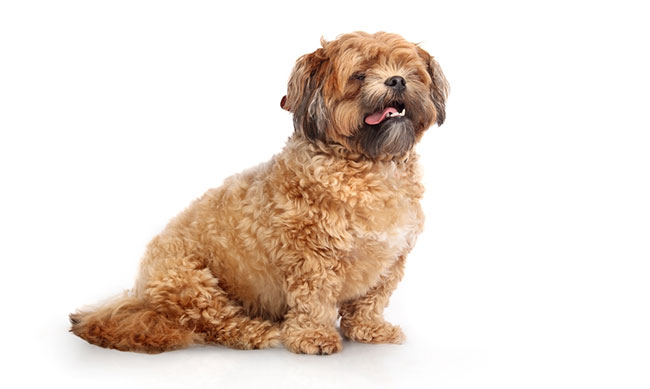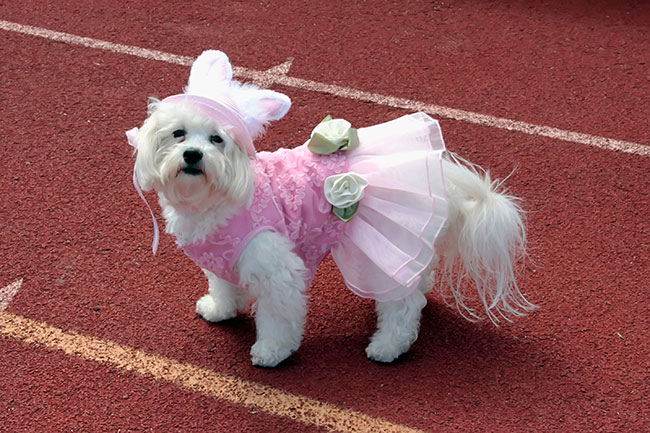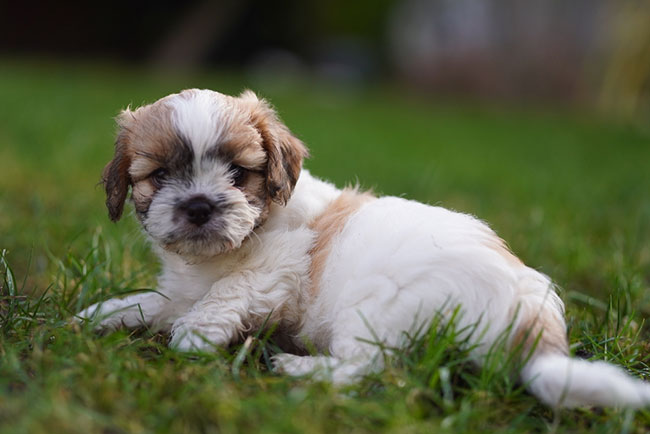
Meet the Shichon, a charming hybrid dog that’s quickly rising in popularity. A cross between a Bichon Frise and a Shih Tzu, these pups inherit the best qualities of both breeds. With their gentle and sweet nature, playful antics, and loyalty, it’s no wonder that they make such great companions.
Shichons, also known as Zuchons or Teddy Bear dogs, are highly adaptable and can thrive in a variety of homes, from apartments to family households to homes with seniors. They’re even well-suited to be therapy dogs due to their outgoing and affectionate personalities.
While they don’t shed much, their curly coats require regular grooming to prevent matting. But for those who don’t mind the upkeep, the Shichon is a loving and devoted pet that’s sure to steal your heart. In this article, we’ll take a closer look at what makes Shichons such wonderful pets and why they might be the right fit for you.
Table of Contents
- About Shichon
- Appearance of Shichons
- History
- Personality
- Living Needs of Shichons
- Care
- Health
- Feeding Guide
- Coat Color And Grooming
- Children And Other Pets
- Exercise Requirements
- Shichon Puppies
About Shichon
- Shichons are mixed breed dogs, a combination of Shih Tzu and Bichon Frise.
- They come in a variety of colors, including cream, silver, black and white, brown and white, and chocolate.
- Shichons are a good choice for allergy sufferers as they are considered low shedders.
- They require daily brushing to avoid the matting of the hair.
- Shichons can suffer from separation anxiety if left alone for long periods and need early crate training or doggy daycare.
- They are popular as therapy and emotional support animals.
- Shichons have high energy levels and need regular exercise.
- They love children and other pets but require supervision during playtime due to their small size.
- Common health issues include sensitive skin/allergies, chronic dry eye, patellar luxation, cataracts, Cushing’s disease, and gum disease.
- Shichon coat colors can vary and change as they grow older.
- They are considered fragile due to their small size and can be prone to fractures.
- Shichons are naturally extroverted and intelligent but are not particularly yappy dogs.
- Most weigh in at nine to 15 pounds and range in height from nine to twelve inches at the shoulder. However, many can be smaller or larger in size, depending on their parents.
- The breed has a life expectancy of 15-18 years and typically weighs 10-15 pounds.
Appearance of Shichons

Shichons are small dogs that typically weigh between 9 to 15 pounds, making them a bit smaller than the breed standard for the Bichon Frise but bigger than most Shih Tzus. When fully grown, these adorable pups stand at just 9 to 12 inches in height and have a medium-length tail at one end and expressive button eyes at the other. Due to their mixed breed origins, Shichon puppies can look quite different from one another, even if they are from the same litter. Some Shichons may resemble a Shih Tzu with a confident strut, while others may be fluffier with a plumed tail like a Bichon Frise. Additionally, Shichons can inherit both parents’ signature traits, which means that their cuteness is always doubled.
Shichons can come in a variety of coat colors, from a curly snow-white coat inherited from the Bichon Frise side of the family to a silky coat credited to the Shih Tzu parent, and even a mix of both. These adorable dogs can have solid coats or wear a combination of colors, including brown, red, gold, cream, black, white, silver, and more. Some Shichons may have a black and white coat or a cream-colored coat with red and gray accents on their ears and near their eyes, making the possibilities for cute combinations endless!
While no dog is entirely hypoallergenic, Shichons do not shed much, and their teddy bear-like fur may be ideal for people who are prone to allergies around dogs.
History
The Shichon is a fairly new breed with unclear origins, but both of its parents are among the most popular dog breeds in the United States, with rich histories that feature royal ties and even a bit of folklore.
The Shih Tzu Club suggests that Shih Tzus were first bred in Tibet roughly 1,000 years ago, possibly by Tibetan monks. These small dogs were once symbols of wealth and prestige, gifted to Chinese emperors. In the 1940s and 1950s, American soldiers stationed in Europe brought the “little lion dogs” to the United States.
Bichon Frises, the shichon’s other parent, are cheerful dogs that have been around since the 13th century, according to the Bichon Frise Club of America. These fluffy, white pups were treasured pets of European nobility, and legend even has it that Cleopatra had a fondness for them.
But don’t be fooled by the Bichon Frise’s pampered reputation; they’ve got hustle. During the French Revolution, when royals lost their power, the Bichon Frise was left to fend for itself on the streets. These clever dogs turned to show business, performing tricks with street performers and circus acts. The breed made its way to the United States in the 1950s, and the BFCA was founded in San Diego in 1964. The AKC recognized Bichon Frises in 1971.
Personality
The Shichon is a highly extroverted and intelligent dog breed, according to many of its owners. While they are a small breed, they are not known to bark excessively. However, they are highly protective of their family and make great watchdogs. They love being active and playing in the yard, but they also enjoy cuddling up to their owners inside.
Due to their strong attachment to their family, Shichons can suffer from separation anxiety if left alone for long periods. Therefore, it’s essential to begin crate training early and consider doggy daycare if necessary. Their intuitive nature also makes them great emotional support animals for those suffering from illnesses.
Although these pups have a stubborn streak, they are highly intelligent, making them excellent therapy dogs. House training can be a challenge due to their small size, but options like potty pads or outdoor leash training can help. These options are especially appealing to older owners who may have difficulty taking their pup outdoors in inclement weather.
Overall, the Shichon’s loving and protective nature makes them an excellent choice for families and individuals looking for a loyal companion.
Living Needs of Shichons

The Shichon breed requires a moderate amount of exercise, which can be met through daily walks or playtime in a fenced yard. However, they are not an all-weather breed and are susceptible to heatstroke due to their thick coat and flat face. It’s essential to keep them cool during hot weather and ensure they have access to shade and water.
Since they are companion dogs, Shichons thrive on human interaction and require a significant amount of attention and affection from their owners. They enjoy playing games, training, and exercising with their humans, but they also love lazing on the couch and snuggling up with their owners. They make great lap dogs and are happy to keep you company during work-from-home Zoom calls.
Shichons can do well in apartments due to their small size and relatively low exercise needs, but they do best with a family that is home quite a bit. They are also well-suited for older adults who may not be able to provide high levels of physical activity. It’s important to note that Shichons may experience separation anxiety if left alone for extended periods, so it’s essential to provide them with plenty of mental stimulation and toys when you’re away.
Overall, Shichons are adaptable and can thrive in a variety of living situations as long as they receive plenty of love, attention, and exercise.
Care
As a Shichon owner, it’s important to be prepared for your pup’s beauty routine to keep their coat in tip-top shape. Daily brushing is a must, paying special attention to the ears and undercarriage to prevent matting, and regular grooming appointments with a professional are recommended. Tear staining and dental disease are also common issues due to narrow tear ducts and small jaws, respectively. Daily tooth brushing and gentle cleaning around the eyes with a moist cloth are necessary to keep your Shichon feeling and looking their best.
In addition to grooming needs, exercise, and playtime are crucial for your Shichon’s overall health and wellbeing. Although not a high-energy breed, Shichons enjoy a good run in a park or backyard to burn off some energy, and a 30-45 minute daily walk is recommended. They are also fast learners and eager to please during training sessions, which are opportunities for quality one-on-one time with their owners.
Regular vet checkups are important for all dogs, including Shichons, to detect any health issues early on. Your veterinarian can also help you develop a routine to keep your pet as healthy as possible. In addition to veterinary care, proper exercise and grooming are essential for your Shichon’s overall wellbeing.
Shichons have higher energy levels, and it’s crucial to ensure that they get the right amount of exercise to prevent obesity. A game of fetch, some chasing around the yard, or a daily half-hour walk will help keep your pet at a healthy body weight. Along with exercise, it’s important to maintain your Shichon’s coat by brushing it daily and taking them for regular grooming appointments with a professional. Shichons can grow long hair, and their eyes and ears should be checked daily for debris.
Dental problems are common in small breed dogs, including Shichons, and daily teeth brushing is necessary to maintain proper oral health. With their short muzzle, Shichons may also be prone to an underbite, a common trait among Shih Tzus. Your veterinarian can best instruct you on how to properly brush your Shichon’s teeth and keep their overall oral health in check.
Training is an essential part of a Shichon’s life, and they are fast learners who are eager to please. Short, productive training sessions that incorporate positive reinforcement and lots of treats are the most effective way to train your Shichon. They have a zest for life and love spending quality time with their humans, so training sessions are an excellent opportunity to bond with your furry friend. By providing your Shichon with proper care, exercise, and training, you can ensure they live happy and healthy life.
Health
Like most other small breed dogs, shichons have a relatively lengthy lifespan. These delightful companions can thrive for 12-16 years and generally enjoy good health. However, as with all dogs, shichons may be susceptible to certain health issues inherited from either of their parent breeds.
Hip dysplasia is a condition that can affect both shih tzus and Bichon Frises, in which the joint doesn’t develop properly and becomes loose. If left untreated, this condition can result in discomfort, mobility difficulties, and osteoarthritis.
On the shih tzu side, other common but treatable issues include patellar luxation (a displaced kneecap) and umbilical hernias. They may also experience eye health problems such as cataracts. Bichon Frises are generally a healthy breed but may be prone to hypothyroidism and von Willebrand’s disease, a bleeding disorder.
However, according to the Institute of Canine Biology, mixed breed dogs are typically less likely than purebred dogs to inherit genetic disorders.
But those who are considering a hybrid pup need to conduct some important research. The shichon is a relatively new “designer” breed, and these adorable dogs are in high demand, which can sometimes lead to unscrupulous breeders operating without the dogs’ health in mind. To ensure that you’re working with a reputable shichon breeder and that you’re bringing home a healthy dog, it’s important to watch out for these common puppy mill warning signs:
- A breeder offering to ship a puppy.
- A kennel producing multiple breeds of dogs.
- Difficulty in finding contact information on a breeder’s website.
- The breeder not allowing you to meet the puppy’s parents or siblings.
Feeding Guide
The Shichon, a hybrid breed resulting from the crossbreeding of a Shih Tzu and a Bichon Frise, is a small but high-energy dog that requires a specific diet to maintain optimal health. As with all dogs, a proper diet is essential to their overall wellbeing, and for the Shichon, this means providing them with the right balance of nutrients, while also being mindful of their potential to overeat.
One of the most critical aspects of a Shichon’s diet is to keep their high energy levels in mind. The Shichon is an active breed that requires a balanced diet with plenty of protein and healthy fats to keep them running, playing, and being generally active. However, because they have a tendency to overeat, it’s important to maintain a regular feeding schedule and to be mindful of portion sizes. Overfeeding your Shichon can lead to obesity, which can lead to a host of other health problems.
While it can be tempting to give your Shichon treats throughout the day, it’s important to limit the amount of “extras” they receive. Instead, focus on providing them with a well-balanced diet of quality dog food that contains all the necessary nutrients, vitamins, and minerals they need. A diet high in fiber can help keep your Shichon feeling full, while also supporting healthy digestion.
It’s also important to keep in mind that a Shichon’s dietary needs will change throughout their life. Puppies require a higher caloric intake than adult dogs, and seniors may require a diet that’s lower in calories to maintain a healthy weight.
How To Feed A Shichon Puppy?

If you have recently brought home a shichon puppy, you might be wondering how to properly feed it. Shichons are a small and playful breed that requires a diet tailored to their specific needs.
When it comes to feeding your shichon puppy, it’s important to remember that puppies have different nutritional needs than adult dogs. Therefore, you should choose a high-quality dry puppy food that is specifically formulated for small breeds.
When selecting your puppy’s food, make sure that the first ingredient listed is a real type of meat. Avoid food that contains meat-by-products, bone meal, corn, or wheat. These ingredients are not as nutritionally beneficial for your puppy as real meat.
For the first year of your shichon puppy’s life, it should be fed puppy food exclusively. Follow the feeding guidelines provided on the dog food package and feed your puppy three to four times a day, gradually reducing the number of feedings to twice daily at two months of age.
If you choose to free-feed your puppy, keep in mind that this can make housebreaking more difficult. You should take your puppy out to do its business 20 minutes after each feeding. Also, make sure to limit the treats you feed your puppy as they should not account for more than 10 percent of your puppy’s caloric intake.
Remember to provide your puppy with fresh water at all times, and consult with your veterinarian to determine the best feeding schedule and dietary requirements for your shichon puppy. By providing your shichon puppy with a high-quality, balanced diet, you can help ensure that it grows up healthy and happy.
Coat Color And Grooming
The Shichon’s coat is typically a mix of colors such as cream, silver, black and white, brown and white, and chocolate. They can also have a solid coat or patches throughout. As the dog grows, their coat colors may change over time. Their coat texture can vary as well, ranging from long and straight to wavy or curly. The combination of the Shih Tzu and Bichon Frise breeds means that no two Shichons are the same, making them a unique and personalized addition to any family.
One of the most significant advantages of the Shichon breed is that they are considered low-shedding dogs, making them an ideal pet for those with allergies. However, this does not mean that they are low maintenance when it comes to their coat. It is essential to brush the Shichon’s coat daily to avoid matting and tangling. Regular grooming appointments should also be scheduled to ensure the coat remains healthy and clean.
Despite their fluffy coat, Shichons are sensitive to extreme temperatures and should not be exposed to prolonged periods of cold or heat. In the winter months, they may need to wear a sweater to keep them warm. Their short snouts make their respiratory tracts sensitive, so they can easily overheat or experience respiratory distress in colder air. It is crucial to monitor their temperature and provide a comfortable environment for them to live in.
Children And Other Pets
To ensure the wellbeing of your Shichon and the safety of your children, it’s crucial to understand that these pups are delicate and can be susceptible to fractures due to their small size. Therefore, it’s essential to socialize them with kids at an early age while always keeping a watchful eye and teaching children the proper way to handle them.
Even the gentlest children may accidentally drop or mishandle a wiggly Shichon, which could result in injuries. However, with proper care and supervision, Shichons can make excellent family pets and provide a loving and loyal companionship.
In terms of other pets, Shichons have no inherent prey drive and can coexist harmoniously with other household animals. However, caution must still be exercised when introducing them to larger or rough-playing animals due to their small size.
Since Shichons are naturally curious and sociable, it’s best to socialize them with other furry family members from a young age, allowing them to adapt to living in a multi-pet household. Nonetheless, like any other breed, it’s important to note that the success of their interactions with other pets relies on their individual personality and how well-trained and socialized they are.
Exercise Requirements
To keep your Shichon healthy and happy, it’s important to engage them in physical activity. Fortunately, there are plenty of fun activities you can do together to help them stay in good shape.
Hiking is an enjoyable way to spend time with your Shichon while also getting some exercise in nature. They’ll love exploring new areas and trekking on different tracks. Swimming is another low-impact exercise that can help with joint issues and build strength. If your Shichon loves to play, fetch is a classic activity that can be made more exciting by switching between different toys and adding obstacles like hills or water.
Finally, obedience training is an excellent way to stimulate your Shichon’s mind while providing them with some exercise. By practicing basic commands, like recall, you can help your Shichon develop mentally and physically. So whether you’re hitting the trails or playing fetch in the backyard, these activities will help keep your Shichon healthy and happy.
Shichon Puppies
Shichon puppies are absolutely adorable with their fluffy appearance that makes them look like little teddy bears. Typically, Shichon litters consist of around four to five puppies. To ensure that they develop into well-adjusted adults, it’s crucial to start socializing these pups from a young age. By doing so, you can prevent them from developing aggression towards other dogs.
Raising a Shichon puppy requires a significant amount of care and attention, but the effort pays off in the long run. If not socialized properly, small breeds like Shichons can develop a feisty temperament that may lead to snappiness towards strangers and other dogs. Therefore, it’s essential to expose them to various social situations early on to help them grow into friendly and well-behaved adult dogs. By investing time in their early socialization, you’re ensuring that they will be a loving companion for years to come.




